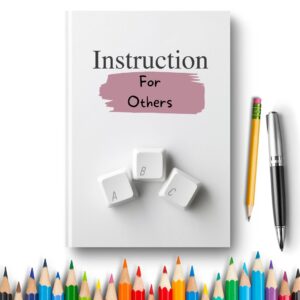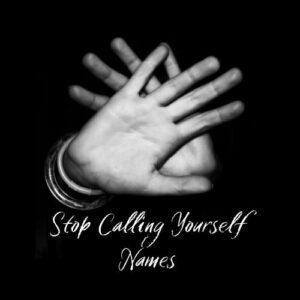How often do you say, “I don’t know”? If you’re like most people, it’s a lot. These three words sabotage your relationship with yourself and get in the way of your dreams.
Saying “I don’t know,” undermines your capability and keeps you in indecision. It can feel safe to rely on not knowing and we often use it as a ready-made excuse not to take action. Instead of putting ourselves out there to risk something, we justify inaction with not knowing, which requires nothing of us. But validating our helplessness in this way comes with a cost. The more we slip into the habit of, “I don’ know,” the better we get at hiding from the future selves we want to become.
We convince ourselves we can’t take action until we know the how (ie. I want to change but I don’t know how).
We didn’t know how to walk before we did.
We didn’t know how to go through high school before we did.
We didn’t know how to be in a relationship until we were.
We didn’t know how to have a child before we did.
Any skill you know now was once something you didn’t know!
Telling ourselves the lie that we can’t do something because we don’t know how just slows us down and widens the gap between who we are and who we want to be.
If you’re reading this you’ve already proven you can figure things out, learn new things, and do things even if you don’t yet know how to do them.
We think we can’t believe in something if we don’t know how to do it but it’s just the opposite; we have to believe we can move in the direction of our desires before we can achieve anything. You start with a belief in your ability to take a step forward, even a baby one, and you keep trying until you have the steps.
Whenever you say, “I don’t know,” you block yourself from your own awareness and potential; you shut down creativity and curiosity.
Here are 5 tips to break the habit of “I don’t know”:
Tip #1: Underneath every “I don’t know” is at least your best guess. Make a rule for yourself where indulging in confusion is no longer allowed. This means making a commitment to yourself to answer your own questions with the awareness you have to the best of your ability. Let your mind expand and consider what’s possible. If you did know, what could that be?
Tip #2: Replace “I don’t know,” with words that invite forward momentum like these:
I’m not supposed to know yet
I’m figuring it out
I’m learning how
I’m gathering info
I’m experimenting
Tip #3: Imagine no one was looking or would judge you no matter what you did, including you! If you were assured of no negative consequences, what would your answer be?
Tip #4: If you knew whatever action you decide to take turns out amazing, what would you do and what’s the very next action you would take?
Tip #5: What is indecision protecting you from? See if you can uncover the emotions you’re trying to avoid by telling yourself you don’t know. Once you identify these, give yourself permission to feel them; allow some space to acknowledge them. Notice how once you do this your brain will begin revealing some creative ideas you weren’t able to access before.



